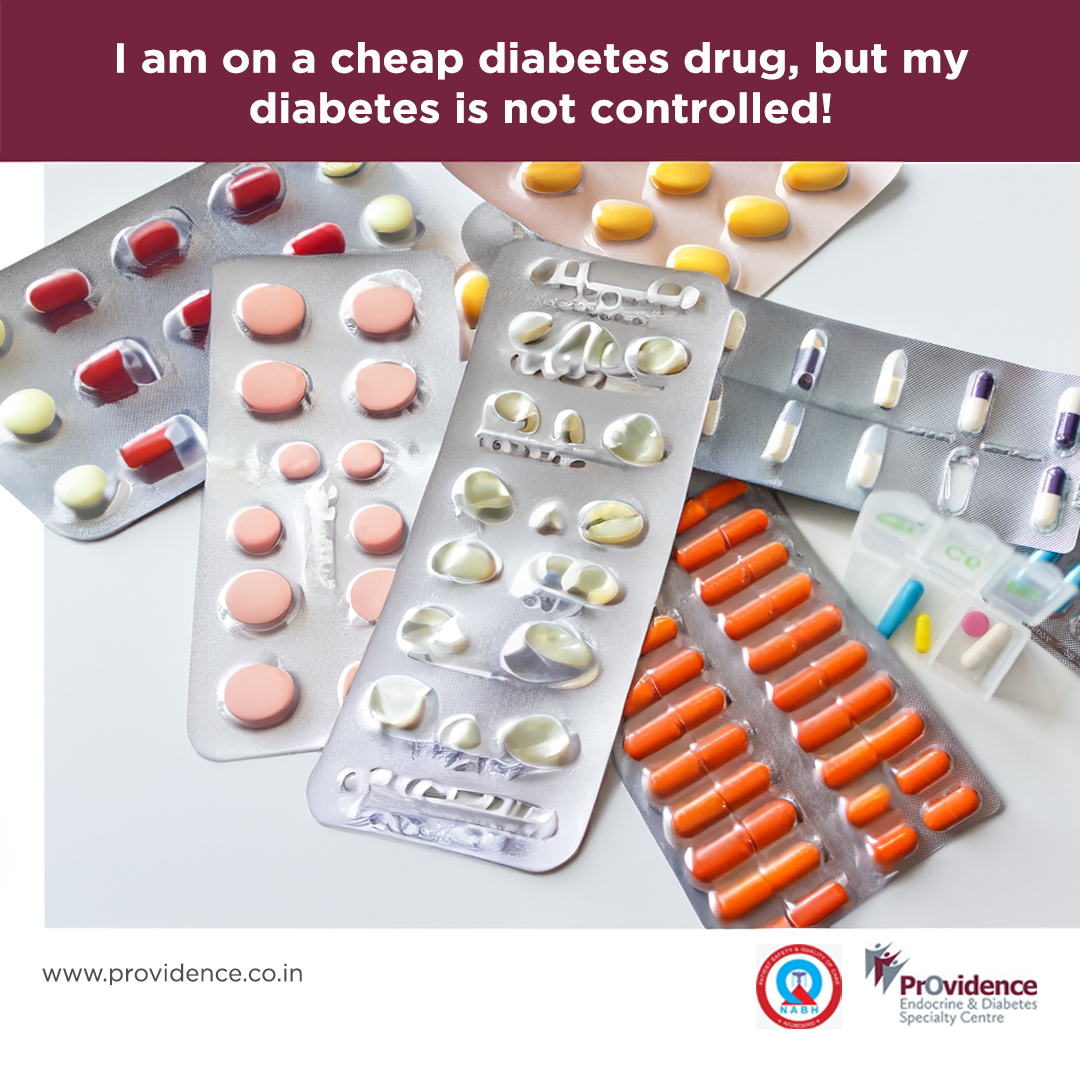As new medicines enter the market, they tend to be expensive. However, they become cheaper over the years since they may be off-patent and manufactured by local pharmaceutical firms. As consumers, we are all aware that any product requires costs to produce, transport, and market with a fair profit for the seller. However, often, people may tend to choose medicines purely for cost concerns, ending up buying substandard drugs.
Most of the affordable drugs belong to an older generation, like metformin and sulphonylureas. While these medications can help manage diabetes, they may not be sufficient for everyone. As the duration of diabetes increases, people may require newer medicines and insulin, which may be expensive. So, a medicine that worked well initially may not work later. Further, not all diabetes medications work the same for everyone. Each person’s body reacts differently to treatments, and what works for one person may not work for another.
Cheap medications can be effective, but they might not be the best fit for your specific needs.
New medicines like GLP-1RA (Liraglutide, Semaglutide, Dulaglutide, etc.) have protective effects on the heart, kidneys and liver. Hence, these medicines can be chosen if you are at high risk of these diseases.
If you’re on a low-cost medication but still struggling with diabetes management, it’s crucial to consult your doctor. Your doctor may recommend adjustments to your treatment plan or additional therapies that better suit your needs.
So,
1. Discuss with your doctor if you are on the correct type of medicine, regardless of cost.
2. Choosing very cheap medicines may also increase your risk of receiving substandard drugs, which are less effective and may be harmful to your health.
3. If cost is a significant concern for you, talk to your doctor to understand which are the best alternatives, e.g. good quality generics and biosimilars
Dr. Tittu Oommen MD, DM



